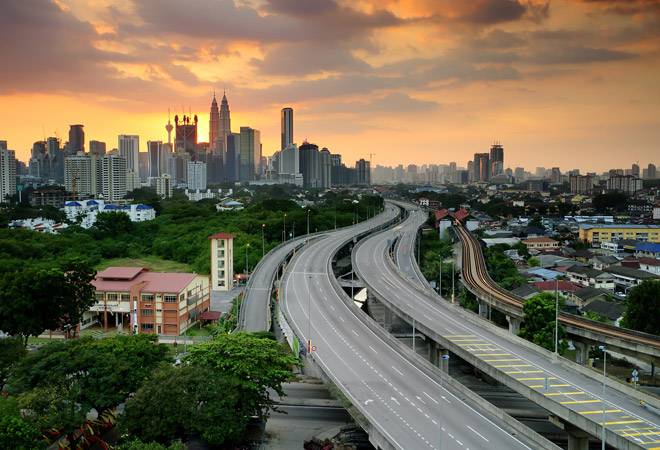Quick Summary!
Bangalore is the heart of India’s IT landscape. The type of opportunities that anyone can find here is immense. Just like the rich geological wealth that this region of land possesses, the opportunities to live and work in an innovative and rich startup environment are no less. However, this very allure comes with a price tag that can send living expenses soaring beyond the realms of many Tier-1 cities. In this guide, we delve deep into the intricacies of Bangalore’s co-living cost-revealing insights that will empower you to make informed decisions about your life in this dynamic city.
The Complete Package for Co-Living Cost
Co-living in Bangalore is not just about finding a place to stay; it’s about embracing a complete living experience. Colive recognizes this and offers managed accommodations that encompass the co-living cost of various essential components beyond rent.
Cost of Co-Living Accommodation
Colive provides a range of accommodation options to suit different preferences and budgets. The costs vary based on factors such as room size and amenities. The cost of Co-Living accommodation starts at an affordable Rs. 5000 and can go up to Rs. 25000 for more premium offerings. This diverse range ensures that there’s something for everyone, whether you’re a student on a tight budget or a working professional looking for added comfort. If you’re searching for PG accommodations in Bangalore, you’re in luck because we, at Colive, have you covered with the best Prime PG options in the city, ensuring excellent transport and connectivity.
Transport and Connectivity
Navigating Bangalore’s traffic can be quite a challenge. A single local ticket costs around Rs. 50, while a monthly pass is priced at Rs. 1500. This information is invaluable for residents who need to factor in their daily commuting expenses to assess the Co-Living Cost.
Utilities and Connectivity
Electricity costs are an essential consideration, and the coliving cost provides an estimate of Rs. 8.20 per unit. Additionally, the blog sheds light on monthly wifi costs, which can range from Rs. 400 to Rs. 1200. These insights help residents plan their budgets more effectively and avoid any surprise bills.
Dining and Entertainment
Living in Bangalore is not just about work; it’s also about enjoying the city’s diverse culinary scene and entertainment options.
Meal Costs
Here’s a breakdown of meal costs at various types of eateries:
- Budget eatery: Rs. 300
- Mid-level eatery: Rs. 700
- Upscale eatery: Rs. 1500
This breakdown allows residents to choose dining options that align with their preferences and the co-living cost while ensuring they remain under budget.
Leisure Expenses
Cost of a fitness studio membership can cost you around Rs. 1600 per month and movie tickets average around Rs. 350. This information helps residents plan their leisure activities and make the most of their time in the city.
Affordable Neighborhoods: Balancing Cost and Comfort
As Bangalore’s popularity surges, residents often seek solace in affordable neighborhoods to manage their finances. The majority of these expenditures revolve around essential costs such as:
- Rent – For a 1 BHK apartment, the starting rent hovers around Rs 11,000, while a 2 BHK unit begins at Rs 15,000.
- Electricity – This utility adds a layer of expenses, with the monthly cost starting from Rs 2,000.
- Bus Pass – Navigating the city with a BMTC bus pass costs around Rs 1,500.
- Wi-Fi – Staying connected comes at a price, with monthly Wi-Fi expenses starting from Rs 1,000.
- Groceries – Keeping the kitchen stocked requires an average monthly expenditure of Rs 1,000.
- Meals for Two – Dining out as a couple may set you back around Rs 2,500.
- House Help – For those availing of domestic assistance, expenses begin from Rs 2,000.
Tailored Expenditure Patterns: Singles, Families, and Couples
The landscape of expenses varies significantly for different demographics within Bangalore:
Singles:
Unmarried individuals manage their budgets by focusing on essentials. Rent, averaging at Rs 10,000, forms a substantial portion of their costs. Additional monthly expenses such as shopping, exploring yummy brews that Bangalore has to offer, and your dating expense of course amount to around Rs 10,000, talking about transportation costs, including a pass for BMTC buses, adding up to approximately Rs 1,000. Daily expenditures hover around Rs 300, which would make the total Rs. 27000 for fairly high living standards. This sum can be drastically reduced when opting for co-living. The cost of co-living accommodation is simply lesser for the same living standards that you will live through if you’re planning on being on your own.
Families:
The complexity of expenses deepens for families. Apart from rent, school fees for children, groceries, and other incidentals contribute to an overall monthly expense range of Rs 40,000 to 45,000. Choices such as owning a car can amplify costs, with car ownership expenses reaching Rs 8,000.
Couples:
Couples, a vital demographic in Bangalore’s urban tapestry, spend differently. While renting a home costs around Rs 25,000 to 30,000, the budget expands to encompass multiple facets of life. Affordable housing options range from Rs 15,000 to Rs 20,000. Owning a car adds a layer of expense, pushing the overall monthly allocation to around Rs 35,000.
Diverse Accommodation Landscape: A Glimpse into Bangalore’s Neighborhoods
The city’s residential landscape showcases diversity, and costs reflect this vivid tapestry. Neighborhoods like Kengeri, with a starting rent of Rs 13,000, provide affordable housing options. Conversely, the lush surroundings of Basavanagudi command a higher rent of Rs 24,000.
Pre-Move Considerations:
Before being on your journey to Bangalore, it’s essential to be aware of the nuances of the city. Everything amazing you hear about Bangalore is definitely true, but you might have to get real and assess the specific considerations. Here is a checklist for it:
- Language Barriers: Even though there’s a local language that exists, being multilingual or even just proficient in English aids in seamless local interactions.
- Budgeting: High initial co-living costs demand diligent budgeting, particularly for commuting adjustments.
- Transport: While Bangalore’s public transport, including BMTC buses, is integral, it can be unreliable and crowded during peak hours. You might have to embed the cab fares into your expense planning.
- Rent Deposits and Negotiations: Prepare for substantial rent deposits, often spanning 10-12 months’ worth of rent. Negotiation skills come in handy.
- Proximity to Work: Opting for housing close to your workplace can save valuable time and help you evade traffic woes.
- Water Supply: Be prepared for potential water supply issues, which might lead to extra expenses for tanker deliveries.
- Dining Costs: Dining out can be costlier than in certain other cities; account for this in your budget.
- Personalized Budgeting: Estimating Bangalore’s living costs involves factors like family size, finances, lifestyle, property type, childcare, education, travel, food, and utilities.
- Prudent Choices: As expenses rise, wise choices are your compass to curbing unnecessary spending.
Wrapping Up Co-Living Expense Breakdown
To get to know more about PGs (Paying Guest accommodations) in Bangalore, we invite you to visit our Colive website. Bangalore, being a thriving hub of innovation and opportunities, has seen the rise of co-living spaces as a practical and vibrant living solution. Coliving’s Expense Breakdown feature provides prospective residents with a transparent understanding of their expenses, empowering them to make well-informed decisions and fully immerse themselves in the city’s offerings.
Whether you are a student, a working professional, or a family, co-living in Bangalore offers a comprehensive living experience that strikes a balance between comfort, convenience, and cost-effectiveness.”










